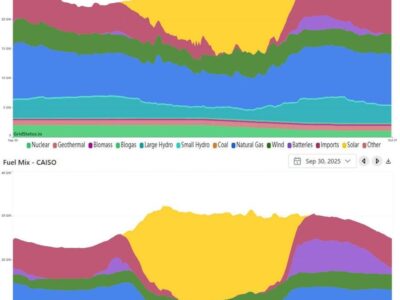Uncertainty in the Age of Coronavirus
There’s a lot we don’t know at this point. How should we deal with that?
Knowledge about the coronavirus is limited but growing. In the meantime, how should we cope with this uncertainty? I can’t give you psychological advice, but I can say something about how to think about this uncertainty.
How to make decisions under uncertainty is something we know a lot about from the environmental sphere. Uncertainty is a pervasive problem in climate policy. We know climate change will cause serious harm. But we don’t know how great that harm will be. That will be determined in part by our own actions, in part by system dynamics we don’t yet understand completely. All of those things are true of the coronavirus.
In the context of climate change, several analytic techniques have been used to deal with uncertainty. (I’ve written about those techniques here.) One is called “expert elicitation,” which just means using a poll of experts as the basis for estimating the odds. We’re seeing that happens in an informal way in the media every day. There has been a more systematic effort as well. It shows a great deal of uncertainty on the part of the experts: “The expert consensus is to expect about 200,000 deaths in the U.S. from COVID-19 this year, but the uncertainty around that number was also huge: There’s an 80 percent chance the final number will be anywhere between 19,000 and 1.2 million, according to these estimates.” Two hundred thousand deaths is about three times worse than a really bad year of flu in the modern era. But obviously it would be a mistake to plan as if we knew for sure that this would be the outcome.
Scenario analysis is another well-tried technique in situations where uncertainty is high. There’s even a high-tech version, where a computer can assess thousands of scenarios to identify robust strategies. Finally, there’s something called α-maximin, which balances the best case scenario and the worst case scenario depending on your level of pessimism/optimism. One important strategy is to stay flexible and adjust your strategies as you get more information, rather than locking yourself into a strategy early on.
Finally, there’s the precautionary principle. It says that uncertainty shouldn’t be a reason for refusing to take cost-effective action. That seems like a no-brainer in the current situation.
As I said, I can’t give you psychological counseling, but there are reasons for being hopeful. Humans can perform much better in an emergency than you might expect. After natural disasters, the authorities are always worried about panic and antisocial behavior like looting, but actually people tend to keep calm and work together in disaster conditions. People can also be inventive in dealing with difficulties, so some of the logistical problems we’re worried about (not enough beds, etc.) may work out better than we fear. We shouldn’t expect scientific miracles but even modest advances in viral treatment would reduce the death rate, as well as getting people out of intensive care more quickly so their beds are free. The models don’t necessarily include those factors. There’s a similar issue in environmental law — often when it is pressed by the necessity of reducing environmental harm, industry comes up with ways to do so more cost-effectively than expected.
Even if things go well, this is going to be a pretty awful time. But don’t assume that the worst-case scenario is going to materialize.
Reader Comments
One Reply to “Uncertainty in the Age of Coronavirus”
Comments are closed.







how about a follow up looking at how EPA has addressed risk and uncertainty or perhaps mangled it in EPA’s recent rulemakings?